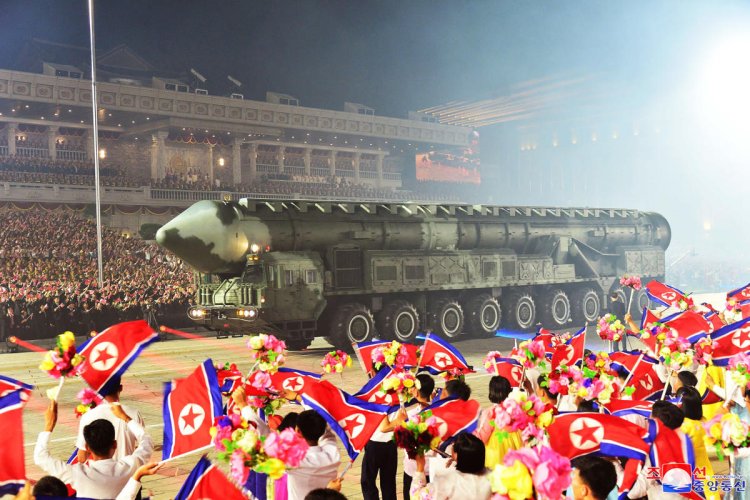North Korea fails to launch spy satellite for a second time
KCNA via AFP - Getty Images fileSEOUL, South Korea — North Korea tried and failed for a second time to launch a spy satellite, state media said, vowing to make a third attempt in October.The Malligyong-1 spy satellite was launched Thursday local time on the newly developed Chollima-1 rocket, whose first- and second-stage flights were normal, the official Korean Central News Agency reported. It said the launch failed “due to an error in the emergency blasting system during the third-stage flight.”The North Korean space agency said there would be a third launch attempt in October after it assessed why the launch Thursday failed. “The cause of the relevant accident is not a big problem in aspect of the reliability of cascade engines and the system,” it said, according to the KCNA report.The governments of South Korea and Japan also reported the launch. South Korea’s Joint Chiefs of Staff said that the rocket was launched around 3:50 a.m. (2:50 p.m. Wednesday ET) from North Korea’s Tongch


SEOUL, South Korea — North Korea tried and failed for a second time to launch a spy satellite, state media said, vowing to make a third attempt in October.
The Malligyong-1 spy satellite was launched Thursday local time on the newly developed Chollima-1 rocket, whose first- and second-stage flights were normal, the official Korean Central News Agency reported. It said the launch failed “due to an error in the emergency blasting system during the third-stage flight.”
The North Korean space agency said there would be a third launch attempt in October after it assessed why the launch Thursday failed. “The cause of the relevant accident is not a big problem in aspect of the reliability of cascade engines and the system,” it said, according to the KCNA report.
The governments of South Korea and Japan also reported the launch. South Korea’s Joint Chiefs of Staff said that the rocket was launched around 3:50 a.m. (2:50 p.m. Wednesday ET) from North Korea’s Tongchang-ri area, the site of its main space launch center, and that the launch had failed.
The U.S. strongly condemned the launch as a violation of U.N. Security Council resolutions that bar North Korea from using ballistic missile technology, saying it raised tensions and threatened regional stability.
The Biden administration is assessing the situation and will take all necessary measures to protect the security of the U.S. and its allies South Korea and Japan, National Security Council spokesperson Adrienne Watson said in a statement.
North Korea, which seeks to develop a space-based surveillance system to better monitor U.S. and South Korean military movements, notified the Japanese coast guard this week that a launch would take place between Aug. 24 and 31.
North Korean leader Kim Jong Un had vowed a second launch attempt after the first one on May 31 ended with the rocket carrying the spy satellite crashing into the sea shortly after liftoff.
In an unusually frank acknowledgment of failure, North Korea said at the time that the rocket had lost thrust between the first and second stages of the launch. Top North Korean officials later called the failed launch this year’s “most serious” shortcoming in the country’s efforts to advance its weapons programs, according to KCNA.
The South Korean military, which recovered wreckage from both the satellite and the rocket used to launch it, said last month that they had “no military utility.”
The U.S. and South Korea are conducting annual military exercises that the North views as a rehearsal for invasion, which the two allies deny.
On Tuesday, North Korea denounced the exercises and said trilateral agreements reached at a first-of-its-kind Camp David summit last week among the U.S., South Korea and Japan raised the risk of nuclear war on the Korean Peninsula.
A day earlier, KCNA reported that Kim had observed the test-firing of strategic cruise missiles in a widely expected resumption of weapons tests in response to the 11-day U.S.-South Korea drills.
This article was originally published on NBCNews.com
What's Your Reaction?








![[Science] Why shipping faces a showdown over greenhouse gas](https://www.9020blog.com/uploads/images/202307/image_650x433_64a2f73fd7f23.jpg)













